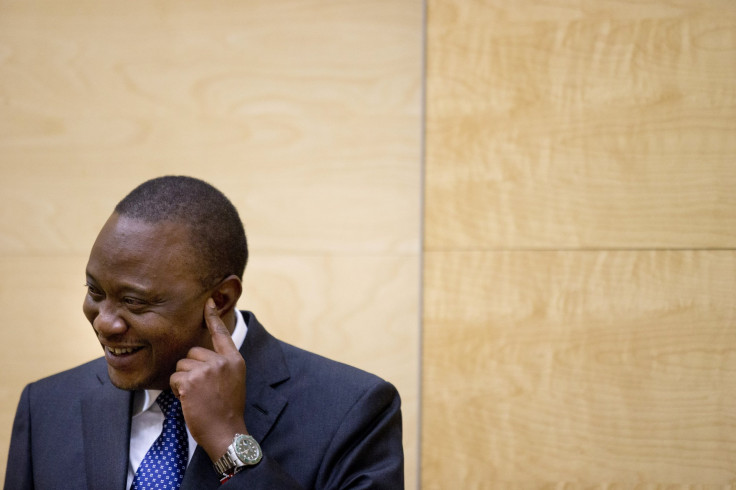Uhuru Kenyatta Criminal Charges Update 2014: International Criminal Court Drops Case, Kenyan President 'Excited' About Decision

The International Criminal Court dropped charges of crimes against humanity against Kenyan President Uhuru Kenyatta on Friday. The court’s prosecution could not sustain the charges against the president, said ICC prosecutor Fatou Bensouda in a statement, according to Al Jazeera.
"The evidence has not improved to such an extent that Mr. Kenyatta's alleged criminal responsibility can be proven beyond reasonable doubt,” Bensouda said. She added, however, that the court could bring new charges against the president at a later date should the prosecution “obtain sufficient evidence to support such a course of action.”
The president said he was "excited" to hear that the court had dropped its case, according to Reuters. He also expressed his hope that the case against two other Kenyan officials would also be dropped, saying "one down, two to go."
Kenyatta had faced five counts of crimes against humanity at The Hague-based court for allegedly orchestrating Kenya’s post-election violence in 2007, when more than 1,000 people were killed. The president denied all charges against him, claiming that the International Criminal Court case against him was politically motivated.
ICC judges had given prosecutors on Wednesday a one-week deadline to bring evidence against Kenyatta or to drop the charges. The court issued a ruling that further delays in the trial would be “contrary to the interests of justice,” according to the BBC.
Prosecutors had been seeking additional time to collect evidence against the Kenyan leader and accused his government of bribing and intimidating witnesses. This charge was echoed in a statement issued by Bensouda on Friday. “The Kenyan Government's noncompliance has not only compromised the prosecution's ability to thoroughly investigate the charges but has ultimately impinged upon the chamber's ability to fulfill its mandate,” she said.
Kenyatta was the first head of state to appear before the court after he was charged with crimes against humanity in 2012. The decision to charge Kenyatta caused international controversy and prompted the African Union to accuse the court of “hunting” Africans, according to the BBC. Since the court’s founding in 2002, it has disproportionately focused on prosecuting Africans, leading to accusations of bias against the continent, according to Al Jazeera.
© Copyright IBTimes 2024. All rights reserved.






















